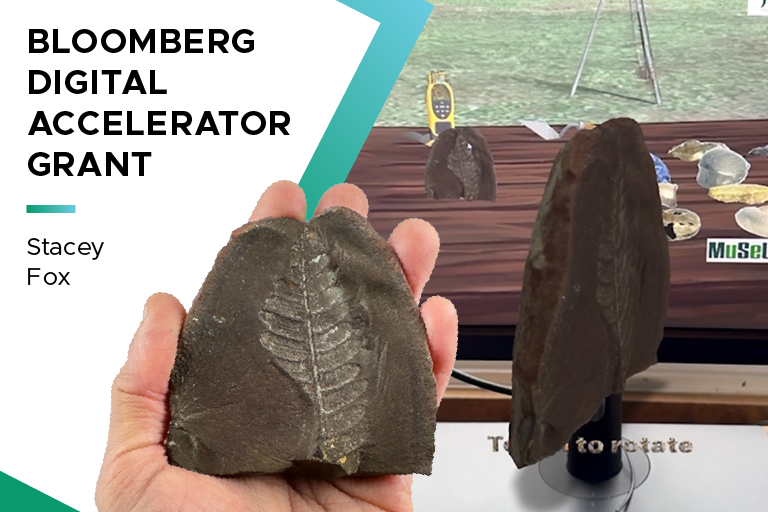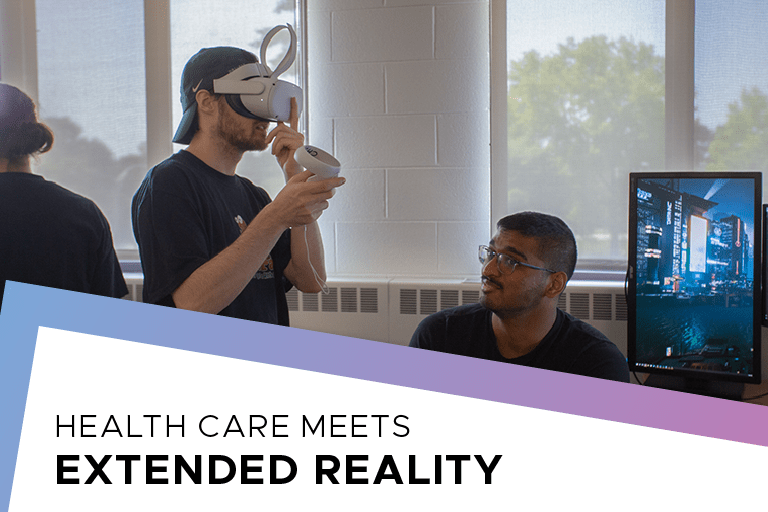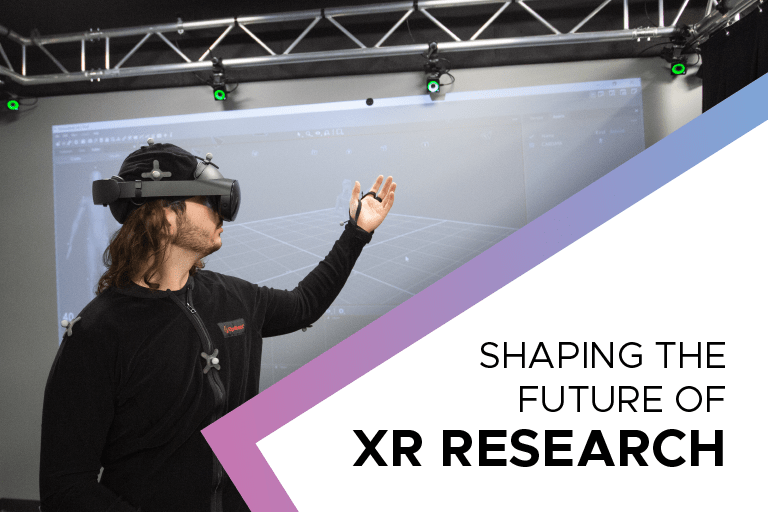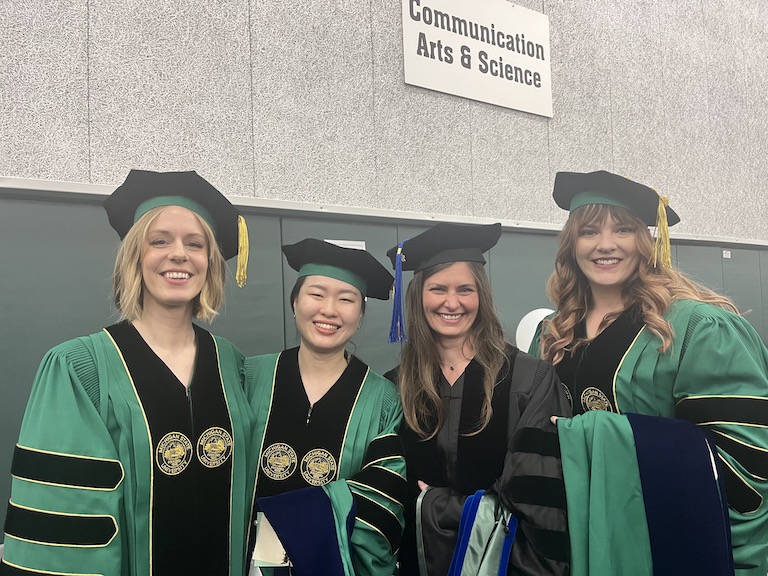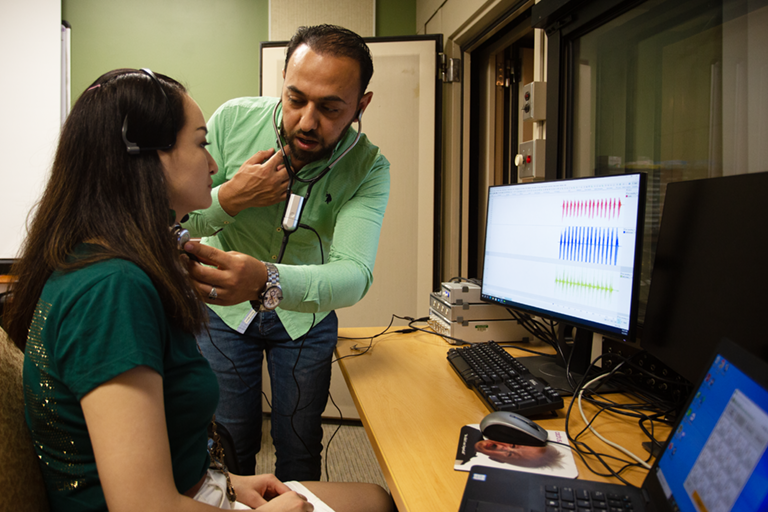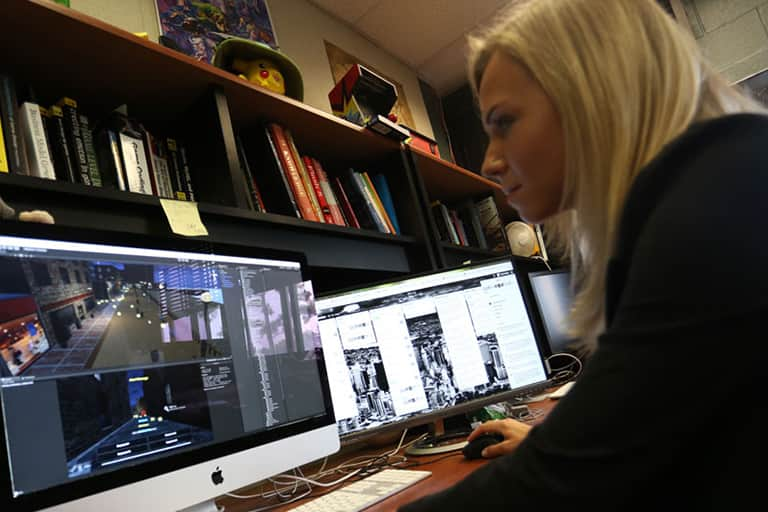XR at ComArtSci
ComArtSci researchers and students are exploring the possibilities of extended reality (XR) technologies — including virtual reality (VR), augmented reality (AR) and mixed reality (MR) — finding innovative ways to use these developments for teaching, research and application development across the communication arts and sciences.
Collaborate on XR Projects
More information below
Join us on this journey: get inspired, advance your research goals, and uncover new ways to use communication for the common good.
Browse our current projects and get a feel for how you might collaborate, then contact a faculty researcher with your proposal.
Not sure where to start? Contact Sri Kalyanaraman in our Office for Research to answer any questions you might have about partnering with ComArtSci.
More Virtual and Augmented Reality
Browse articles featuring ComArtSci's work in the XR space.
Featured Centers and Labs
Our labs are home to the cutting edge tools and tech needed to create and study in XR environments.
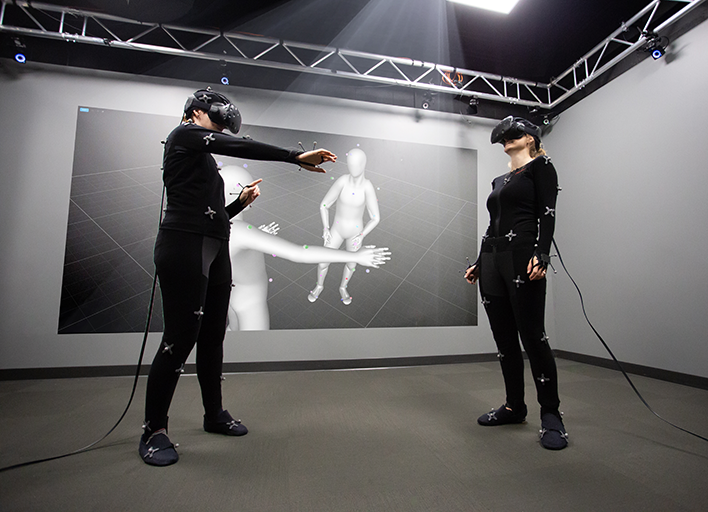
CARISMA Lab
The Center for Avatar Research and Immersive Social Media Applications (CARISMA) Lab is dedicated to the study of human experience in virtual and augmented realities. The lab specializes in using advanced XR equipment to map bodily motion onto virtual characters using markers and cameras — advancing the field of social science and laying the scientific groundwork for evidence-based, human-centered designs of future XR applications.
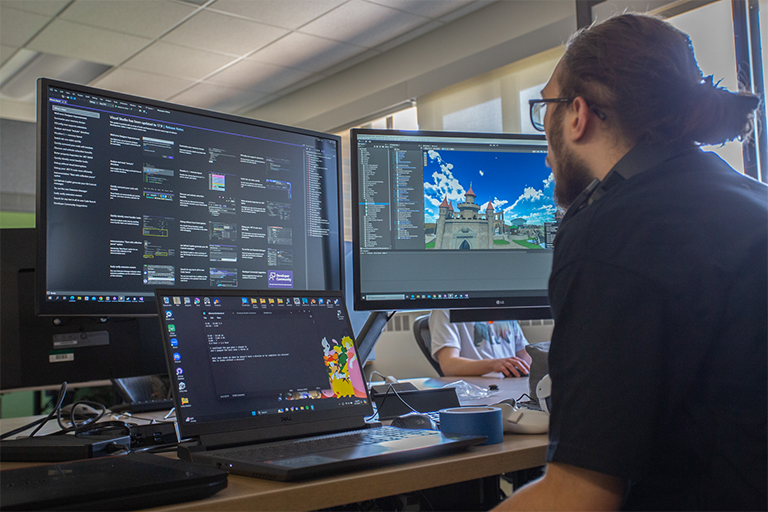
GEL Lab
XR is built using existing game technology, and the Games for Entertainment and Learning (GEL) Lab specializes in developing 3D video that can work in real-time for XR. Led by our expert game design faculty and supported by our highly skilled graduate and undergraduate students, the lab focuses on externally funded research and development work — designing innovative prototypes, techniques, complete games and apps.
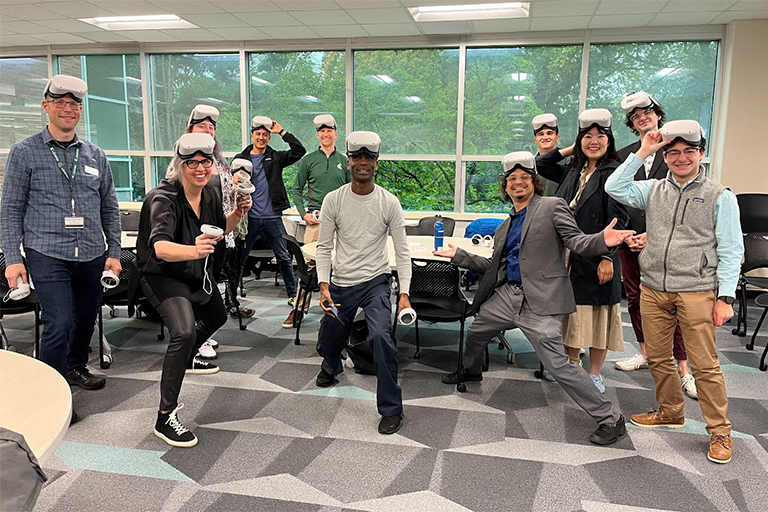
SPARTIE Lab
The Social and Psychological Approaches to Research on Technology-Interaction Effects (SPARTIE) Lab conducts research on the effects of human-technology interaction, examining how the use of media technologies influences meaningful outcomes. The lab is known for work in areas like teaching in VR, the Proteus effect, virtual meeting support, human-agent interaction and mixed reality effects.
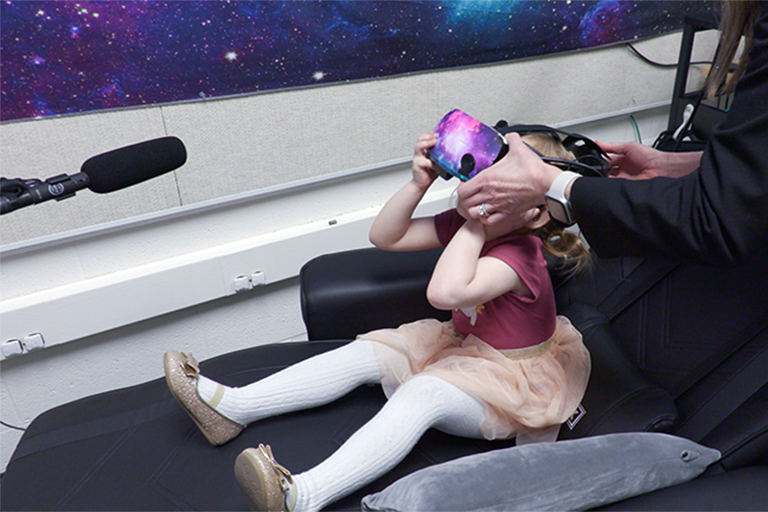
DS Lab
In the Developmental Speech Lab (DSL), scientists, speech-language pathologists, and students work together to understand how stuttering develops in young children — with the goal of improving diagnostic and treatment approaches for children who stutter. This pediatric lab is currently conducting studies using VR scenarios the researchers co-developed to explore how different simulated communication situations induce changes in speech and autonomic nervous system activity.
Featured Researchers
Our interdisciplinary researchers are open to collaboration on XR projects — across campus and around the world.
Faculty

Faculty

Andrew Dennis
Professor of PracticeDepartment
Media & InformationAndrew is an artist, designer and co-founder at Adventure Club Games, a contract and grant development studio in East Lansing Michigan.
Contact
Faculty

Allison Eden
Professor, Director of Doctoral Studies in CommunicationDepartment
CommunicationDr. Allison Eden (Ph.D. Michigan State University) is an associate professor in the Department of Communication.
Contact
Faculty

Rabindra Ratan
Professor and AT&T Endowed ChairDepartment
Media & InformationDr. Rabindra (Robby) Ratan runs MSU's Social and Psychological Approaches to Research on Technology-Interaction Effects (SPARTIE) Lab: www.spartie.org. His research examines research on how media technologies (e.g., avatars, agents/AI, VR, online games) influence meaningful outcomes (e.g., equity, well-being, motivation) across societal contexts (e.g., education, health, industry).
Contact
Faculty

Ralf Schmälzle
Associate Professor of Communication ScienceDepartment
CommunicationRalf Schmälzle, Ph.D. (SHMAL-ts-lee, 拉尔夫·舍马尔兹勒) is an Associate Professor of Communication Science in the Department of Communication at Michigan State University. His research focuses on brain responses to real-life messages in the domains of health communication and entertainment media. He is cross-trained in communication and psychology, and integrates methods from cognitive neuroscience and AI.
Contact
Faculty

Jeff Searl
ProfessorDepartment
Communicative Sciences & DisordersJeff Searl comes to the MSU Department of Communicative Sciences and Disorders with a combination of clinical experience and research that can prepare students for the practice of speech and language pathology as well as research in clinical populations.
Faculty

Bridget Walsh
Associate ProfessorDepartment
Communicative Sciences & DisordersDr. Bridget Walsh is a certified speech-language pathologist, Brandt-Endowed Associate Professor, and Director of Undergraduate Studies in the Department of Communicative Sciences and Disorders. Dr. Walsh directs the Developmental Speech Laboratory where she and her team research the development of stuttering and its adverse impact on children.
Contact
Faculty

Brian Winn
Professor, Director of the Games for Entertainment and Learning LabDepartment
Media & InformationBrian M. Winn is an Associate Professor in the Department of Media and Information and Director of the Games for Entertainment and Learning (GEL) Lab at Michigan State University. Winn designs, creates, and researches interactive media design, including game design, digital game-based learning and interactive health communication.
Faculty

Kathryn Genoa-Obradovich
Assistant ProfessorDepartment
Communicative Sciences & DisordersContact
Explore Degrees and Programs
Opportunities to study and work with virtual, augmented, and mixed reality are available to ComArtSci students of all levels.
If XR interests you, we think you’ll enjoy these programs:
